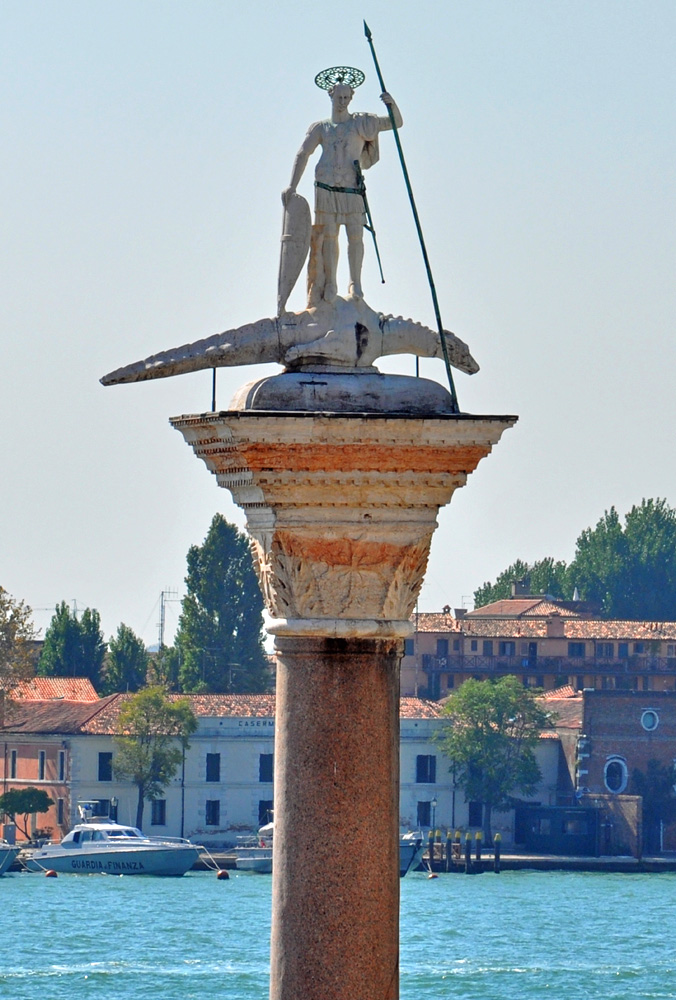To whom the provost said: Then thy God hath a son?
And Theodore said: Yea, certainly.
To whom the provost said: Of whom may we know him?
And Theodore said: Forsooth, Truly ye may well know him and go to him.
And then there was term given to St. Theodore for to do sacrifice unto the idols. And he entered into the temple of Mars by night and put fire in it under, and burnt all the temple. And then he was accused of by a man that had seen him, and was enclosed in the prison for to die there for hunger, and then our Lord appeared to him and said, “Theodore my servant, have thou good hope, for I am with thee.” Then came to him a great company of men clad in white, the door being closed and began to sing with him.
And when the keepers saw that they were afeard and fled. Then he was taken out and warned commanded to do sacrifice. He said: If thou burn my flesh by fire and consumest it by divers torments, I shall never reny deny my God as long as my spirit is in me.
Then he was hanged on a tree by commandment of the emperor, and cruelly his body was rent and torn with hooks of iron, that his bare ribs appeared. Then the provost demanded of him: Theodore, wilt thou be with us or with thy God Christ?
And Theodore answered: I have been with my Jesu Christ, and am, and shall be. Then the provost commanded that he should be burnt in a fire. In which fire he gave up his spirit, but the body abode therein without hurt about the year of our Lord two hundred and seventy-seven. And all the people were replenished filled with right sweet odour, and a voice was heard which said: Come to me, my friend, and enter into the joy of thy Lord, and many of the people saw the heaven open.
Golden Legend Table of Contents
Christian Iconography Home Page

St. Theodore is one of the patron saints of Venice, where this statue stands atop one of the pillars in the Piazzetta San Marco. It recalls an ancient legend in which he slew a man-eating dragon (Acta Sanctorum, November vol. 4, 16-17) See the description page for this image and the page explaining the iconography of images of this saint.
VORAGINE'S ETYMOLOGY FOR THE NAME THEODORE
Theodore is said of theos, that is as much to say as God, and of das, that is to say, give. And of rus, ruris, that is, a field. And thus Theodorus is as much to say as a field given of God. For he gave him to God and renounced the field of the chivalry of the emperor.
This text was taken from the Internet Medieval Source Book. E-text © by Paul Halsall. Annotations, formatting, and added rubrics by Richard Stracke. Permission is granted for electronic copying, distribution in print form for educational purposes and personal use. If you do reduplicate the document, indicate the sources. No permission is granted for commercial use.
NOTES
1 Graesse has in urbe Marmanitorum, "in the city of the Marmanites." There is no record of any city or people of that name; earlier legends have Theodore a native of Armenia, so urbs Marmanitorum is quite possibly a corruption of urbs Armeniorum, "city of the Armenians."